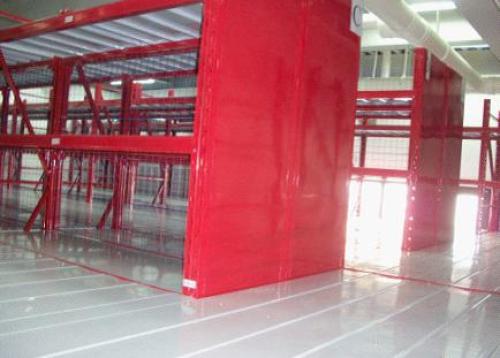
The Alibaba Group's large-scale IPO plan in New York highlights the enormous potential of China's e-commerce and the weaknesses in the logistics industry that need to be addressed—if the explosive growth of the prophecy is to be achieved.
Aging warehouses that supply goods to customers in the world’s second-largest economy have been overwhelmed by the lack of pressure. They lack automated equipment and the industry’s most advanced technologies that have helped Amazon in the United States and Europe. The consulting firm KPMG in a recent report stated that by 2020, the size of the Chinese e-commerce industry will exceed the total of the United States, the United Kingdom, Japan, Germany and France.
According to one builder, in order to cope with this wave in China, over the next 15 years, the purchase of land and the construction of warehouses alone may require as much as $2.5 trillion in investment. This is attracting the attention of global private equity investment companies such as Blackstone Group and the Carlyle Group. They seek to make a big splash from the expected investment boom.
Jeff Schwartz, co-founder of China's largest foreign-funded logistics facility builder, the Prologis Group, said: "In the next 15 to 20 years, the actual cost of building a warehouse will be astonishingly high."
Since each new warehouse has an area equivalent to several large stadiums, these investments will be equivalent to a new warehouse of 2.4 billion square meters. The ProLogis Group estimates that based on per capita ownership, the US$2.5 trillion investment required in the next 15 years will only enable the number of fully automated modern warehouses in China to reach 1/3 of the United States.
Alibaba controls 80% of China's total online retail sales. Its logistics partners delivered 5 billion online transaction packages last year. Although China's transportation infrastructure has so far kept pace with the rise of Alibaba, for the entire e-commerce industry's supply chain, warehousing capabilities are regarded by logistics experts as a critical part of the urgent need to improve. Shi Yiyi, director of China's Ministry of Industry at real estate consultancy Jones Lang LaSalle, said that the number of modern storage facilities in Boston, United States, is more than the sum of China's total.
According to the ProLogis Group and other storage facilities builders, less than 20% of China's warehouses can be classified as modern, with a fully computerized tracking system and the latest retail technology. Many of the warehouses that serve Alibaba and its peers are located in areas where trucks are difficult to access. They usually do not have the loading platform that allows the package to roll directly from the conveyor into the truck tow, but instead use manual methods to load and unload.
This is a problem that may weaken the profitability of e-commerce companies. The ProLogis Group stated that although China’s wage level is much lower than that of the United States, China’s cargo transportation costs may be more than double that of the United States.
Alibaba and other e-commerce companies are investing heavily and have so far been able to cope with the peak demand for logistics, providing delivery services in many major cities the next day or even the same day. Alibaba’s efforts to upgrade China’s logistics industry have not been ignored. The company’s domestic e-commerce company, Amazon’s rival, ShopRunner, will use Alibaba’s domestic logistics network when it launches its Chinese business later this year. .
While expecting to build a consumer-driven economy, Beijing also puts modern supply chains as a priority. The enthusiasm of warehousing facilities construction attracted more than financial acquisition companies such as the Carlyle Group, China's Hopu Investment and RRJ Capital, and specialized international companies such as ProLogis, Fortune Group and Ambow have already invested large sums of money in large-scale storage in China. facility.